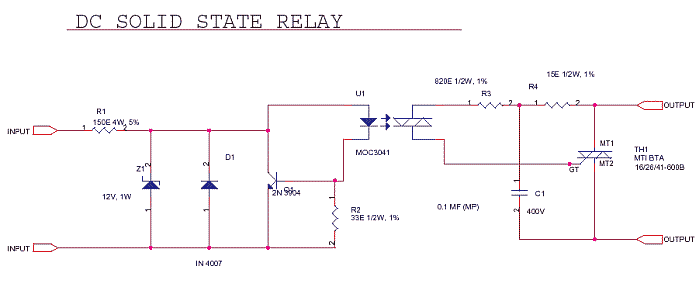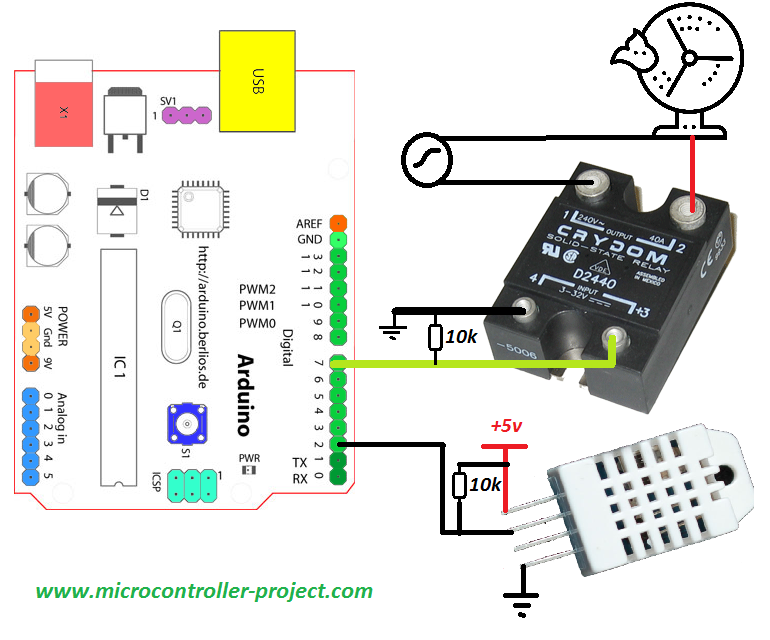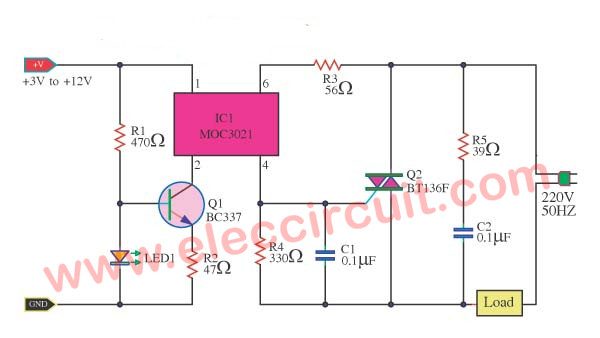Solid State Relay Common delabs Schematics Electronic Circuits Circuit Diagram
BlogSolid State Relay Common delabs Schematics Electronic Circuits Circuit Diagram The solid state relay (SSR) is a safe, versatile, and industrial applications, there is an increasing need for low voltage or low current circuits to switch high voltage or high current circuits. While electromechanical relays (EMRs) have their place, solid state relays (SSRs) are often preferred due to their small size, lower cost, high

What is a Solid State Relay? As the name implies, solid state relay (SSR) works on semiconductors. In contrast to an electromechanical relay which uses mechanical contacts to switch on or off a circuit, there are no mechanical contacts inside the solid state relay.. Switching is done swiftly through semiconductors like triac, transistor, diode, and thyristors.

Solid State Relay: Types of SSR Relays Circuit Diagram
Learn about solid state relay (SSR), an electronic switching device that uses optocoupler to isolate the control circuit from the load circuit. Find out the different types of SSR relays based on input/output form, switching property and poles/throw form, and their advantages and disadvantages.

Learn what a solid-state relay (SSR) is, how it works, and its features and types. Compare SSRs with mechanical relays and see examples of SSR circuits and applications. Learn how solid state relays (SSRs) use phototransistors and other semiconductor devices to switch AC and DC loads with optical isolation. Compare SSRs with electromechanical relays and understand their advantages and drawbacks. Learn what a solid state relay (SSR) is, how it works, and how it differs from an electromechanical relay. Explore the various types of SSRs based on control signal, load type, switching characteristics, and output modulation.

Basics, Working, Types and ... Circuit Diagram
There are two main types of relays: electromechanical relays and solid-state relays (SSR). Electromechanical relays are built with physical switches and electromagnets. While solid-state relays are built from solid state components, such as transistors, to perform the same function without any moving parts.
